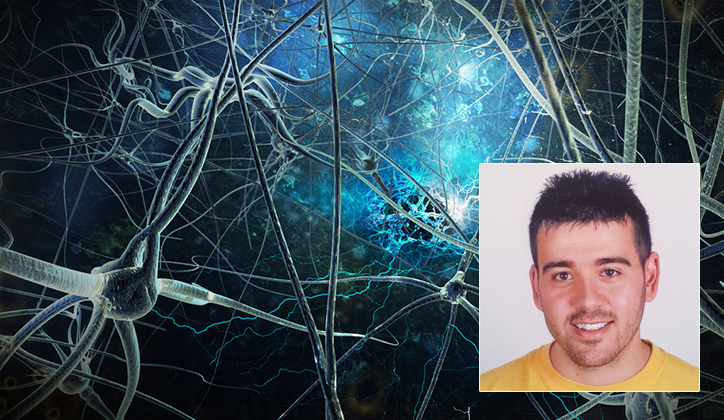We’re profiling nominees in the lead up to the 2014 Macquarie University Research Excellence Awards on Thursday 2 October.
This week meet PhD candidate Mirko Farina from the Department of Cognitive Science,who is a nominee for an Excellence in Higher Degree Research – Social Sciences, Business and Humanities Award.
How long have you been a researcher at Macquarie?
I came to Australia in January 2012 so I have been a researcher at Macquarie for almost three years now.
I was drawn to research because…
I was drawn to research for three reasons: first, the challenge of solving the unsolved problems in my discipline; second, the desire to gain intellectual satisfaction (and of course a bit of respectability) by being creative in my work; and third, the ambition of being of service to other people, and perhaps society.
What would be an ‘elevator pitch’ of your research area?
My academic interests fall at the confluence of non-Cartesian cognitive science, philosophy of mind, developmental neuroscience, philosophy of biology, cognitive psychology, and philosophy of perception.
My research is concerned with so-called second wave extended mind theories, which I defend based on empirical evidence drawn from developmental neuroscience and ontogenetic niche construction in evolutionary biology. I am also interested in perception, human sensory modalities, and have published a number of papers on sensory substitution, echolocation, and synaesthesia.
More recently however, the focus of my research has become increasingly concerned with debates about nativism and anti-nativism in the philosophy of mind, processes of enculturation and issues related with cultural learning in both evolutionary psychology and developmental neuroscience. In particular, I suggested a revision of the neuroconstructivist framework in developmental psychology, formulated a critique of Gary Marcus’ neo-nativism in philosophy, and developed (together with my colleague Nicolas Bullot) a new theory of cultural learning in the cognitive sciences.
I find Andy Clark oddly compelling.
In layman’s terms, what is the wider impact of your research?
Part of my research is devoted to the study of Sensory Substitution Devices (SSDs). SSDs are devices that are used by visually impaired subjects to replace vision via either vibro-tactile or auditory patterns of stimulation. Although the principles of sensory substitution have been validated by many researchers over several decades, its potential benefit for visually impaired people still remain largely untapped. Indeed, research on sensory substitution could bear incredible consequences on the lives of millions of visually impaired individuals worldwide. One aspect of my research is concerned with promoting the idea of sensory substitution in society and exploring the possibility of commercial development among those in need.
Who is/was your biggest research mentor?
People like John Sutton, Andy Clark, Kim Sterelny, Michael Tomasello, Cecilia Heyes, Nicolas Bullot, Julian Kiverstein, Annette Karmiloff-Smith, and Michael Wheeler have played a crucial role in the development of my ideas and are certainly the biggest sources of inspiration for my research.
My supervisor John Sutton is also the greatest inspiration when it comes to professionalism and commitment to the profession. In the past three years John has offered me his time, his ideas, his moral support and his patience, and I cannot describe how much these things have meant to me. I owe him an immense debt of gratitude. No graduate student could have had a better supervisor who did more for them than mine did for me. If I will ever become a professor it would be a great satisfaction to know that I am half as good as John is with his students.
My favourite and/or most proud research moment was when…
My favourite and probably most proud and emotional research moment was when I signed my first contract (followed by few others, luckily) for Oxford University Press back in 2010. I was then just starting my MPhil at the University of Edinburgh and felt honoured and privileged to be invited by my supervisors Andy Clark and Julian Kiverstein to contribute to an Oxford Handbook where I was the only graduate student, and the other contributors were all world-renowned professors. That was certainly the most exciting moment in my academic research and I still cherish that moment with joy.

